Weirdest spin-offs in video game history
Series oddballs that strayed far from the norm
Pac-Attack
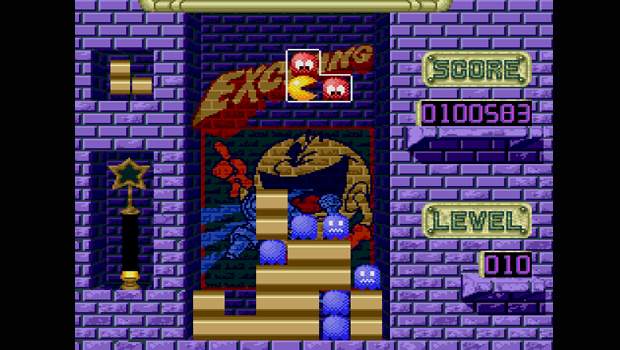
Original genre: Arcade
Spin-off: Puzzle
It isnt unnatural to see a mascot like Pac-Man appear in a number of spin-offs, but in the early 1990s Namcos pellet-muncher rarely strayed outside of his comfort zone of chomping ghosts in mazes. That changed in 1993 when the popularity of puzzle games--particularly Tetris--were hard for publishers to ignore.
Namco decided to meld the concept of constantly falling blocks with Pac-Mans unending appetite, but this time the combination ended up working out. We were pulled in by the odd challenge to not only match blocks, but also to create the optimal path of ghosts for Pac-Man to eat. Though left alone many years, Pac-Attack was recently rereleased on iOS devices, giving many a new chance to experience this unusual chapter in the arcade icons life.
Chocobo Racing
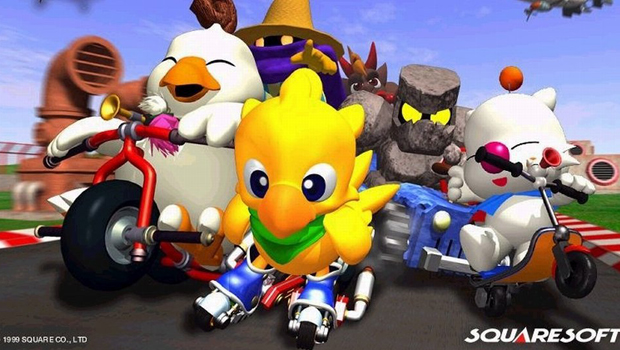
Original genre: JRPG
Spin-off: Racing
These days Square Enix is ready to take a chance on combining any disparate genre with Final Fantasy, but a kiddie FF side game was still fairly novel in the late 90s, particularly a kart racer. Following in the footsteps of Crash Team Racing, Square adapted the Mario Kart concept to fit with their more adorable creatures, including chocobos, black mages, and moogles as the drivers.
The gameplay didnt do much to differentiate itself from similar games, but the most bizarre choice was that--aside from Squall and Cloud being unlockables--Square went with cutesy characters instead of the more popular humans from the main games. It was a mistake they wouldnt make again with Kingdom Hearts.
Kingdom Hearts
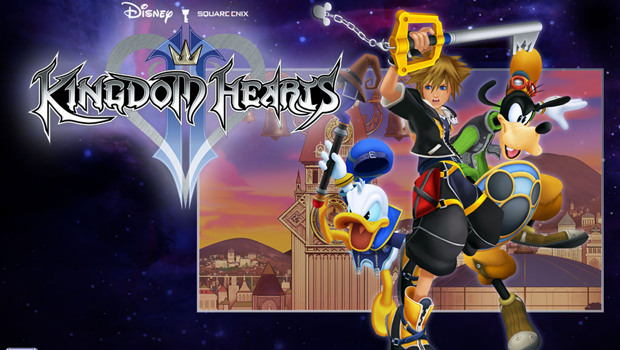
Original genre: Turn-based JRPG
Spin-off: Action RPG
Sign up to the GamesRadar+ Newsletter
Weekly digests, tales from the communities you love, and more
Forget everything you know about the series and just imagine a game based on the following description. An amnesiac tween is living happily on an island with child version of Final Fantasy heroes. The idyllic paradise is attacked by shadow monsters that kidnap the other amnesiac kids.
The incredibly convoluted story then has the kid teaming with Donald Duck and Goofy, visiting dozens of worlds based on films from the Disney vault, and saving Mickey Mouse from certain doom. Oh, and he also battles Sephiroth and Cloud in Hercules battle coliseum. If there wasnt so much proof that these games actually exist, wed think that this was particularly immature fan fiction.
Dance Dance Revolution: Mario Mix
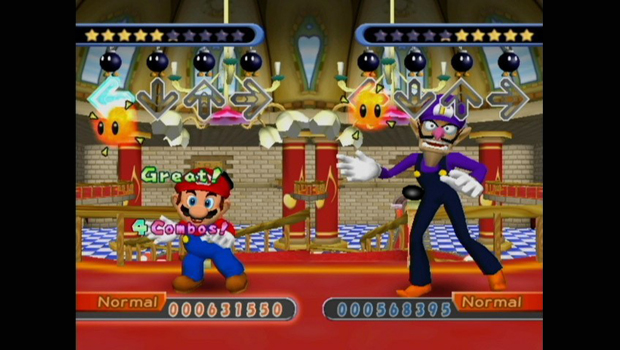
Original genre: Sidescroller
Spin-off: Rhythm game
Mario is the king of spin-offs, able to have a great time whether playing golf or medicating patients as Dr. Mario. Still, theres one thing that will likely never look natural on Mario and thats dancing, a fact that this DDR digression for the GameCube proved expertly.
In Mario Mix the portly plumber fights Waluigi, Bowser, and many other regular enemies, though instead of jumping on their heads, he battles them with smooth moves on the dance floor. Sadly, this wasnt the last time Mario hit the dance floor.
Metal Gear Acid
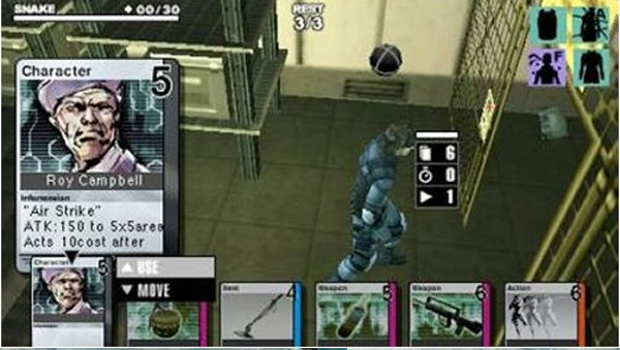
Original genre: Stealth
Spin-off: Turn-based strategy
Millions have enjoyed Solid Snakes long career in espionage, mostly involving sneaking around corners, shooting guards in the head, and pontificating on the nature of war. Series creator Hideo Kojima is one of the most experimental minds in gaming, so no potential spin-off seems totally impossible. However, translating Snakes mature tale of betrayal and intrigue into a collectible card game was not something we expected to play when the PSP launched.
Set in a separate continuity from MGS, the usual lengthy cutscenes were replaced by cheaper motion comics, while Snakes normal actions all work within the concept of what card you pulled. It grew a cult audience, and the sequel fixed some of the problems, but most Metal Gear fans were left waiting for the real PSP Metal Gear that they got in Portable Ops.
Persona 4: Arena
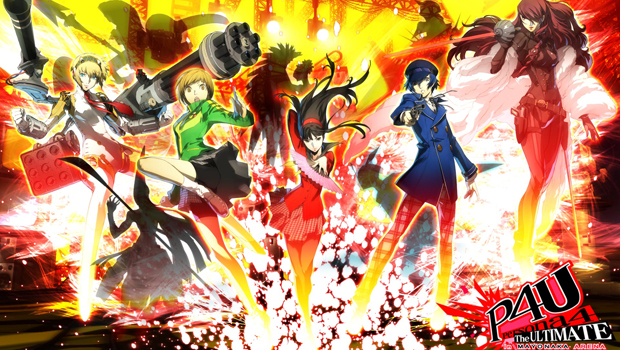
Original genre: JRPG
Spin-off: 2D fighter
Persona 4: Arena brought together two different niche fan bases together with one fighting game. Developed by the team responsible for Guilty Gear and BlazBlue, Arena pulled together the emo high school students of both Persona 3 and 4 into one 2D fighter.
Even weirder than the idea of mashing together genres as dissimilar as fighting games and RPGs was the fact that the single-player story was canonical. Everything that happened in it was official as far as Persona publisher Atlus was concerned, even though they could have gotten away with calling it an imaginary game. A weird choice, but one appreciated by Persona fans addicted to the franchises mythology.
LEGO Rock Band
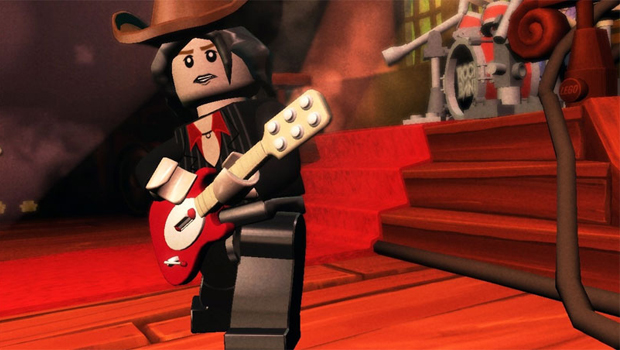
Original genre: Rhythm game
Spin-off: Slightly blockier rhythm game
LEGO Rock Band was a weird side gig for all parties involved. For Traveller's Tales, it was a departure from the usual film-based brick-a-thons it had been cranking out for Lego; and for Harmonix, it was an uncharacteristically kid-friendly take on its head-banging Rock Band series. The whole concept felt like it was born out of a drunken night of brainstorming between the two studios, except unlike most creative projects born of alcohol, both developers remembered it the next morning.
Luckily, the game fared well amongst critics, and sold more than enough to break even. Still, we've never heard of anyone who played it, and by the time the music faded, both studios were ready to go back to solo projects.
The Typing of the Dead
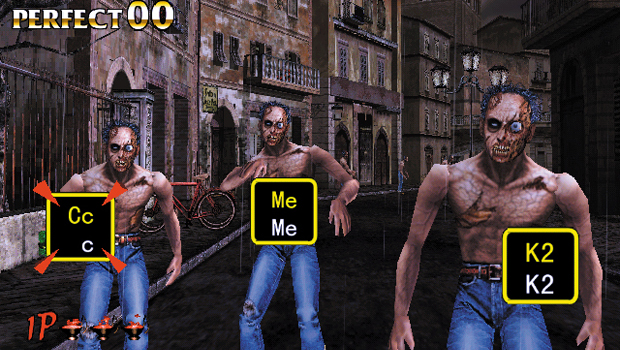
Original genre: Lightgun shooter
Spin-off: Typing tutor
In 1999, WOW Entertainment envisioned a zombie apocalypse fought not with shotguns and secret agents, but with keyboards and, uh, guys who could spell goodly. Copied and pasted from House of the Dead 2, the Sega-published edutainment title replaced the satisfaction of shooting monsters with the hardcore, finger-tapping excitement of typing words to rid the world of evil, one labeled zombie at a time.
The Typing of the Dead was later ported to Dreamcast in 2001 by Smilebit (Jet Set Radio, Panzer Dragoon) where it proceeded to ruin Christmas for a generation of gamers. Was this Sega's way of fighting mankind's greatest plague, illiteracy? Perhaps. But even though critics were kind to it in reviews, we're not sure many schools wound up making this part of their curriculem. Curriculim. Corric ... er, school learning.
Halo Wars
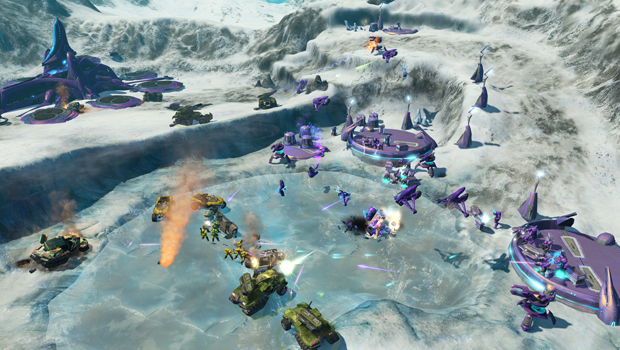
Original genre: FPS
Spin-off: RTS
When Bungie left Master Chief in stasis at the end of Halo 3, it fell to Ensemble Studios to keep the series frosty with Halo Wars, a prequel that mutated the franchise's FPS DNA into a top-down RTS. The genre switch was jarring for the fans to say the least. Think of Half Life: Episode 3 arriving as a puzzle game or Gears of War returning as a point-and-click adventure.
Thankfully, with the talent of the Age of Empires studio to back it up, Halo Wars made the adjustment with nary a scratch to the series' reputation (even if it left some of the more hardcore FPS fans scratching their heads). As one of the highest selling RTS games for consoles, it'd be a stretch to say Halo Wars was a failed experiment.
Link's Crossbow Training
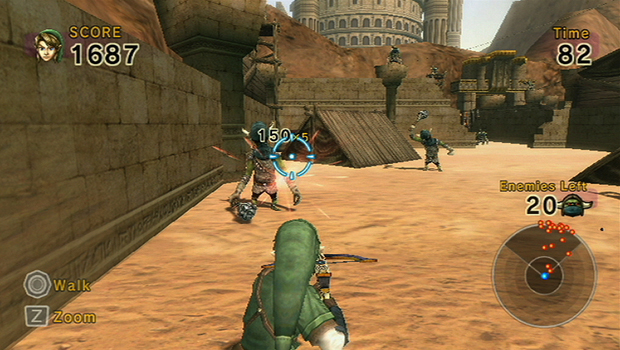
Original genre: Action adventure
Spin-off: Shooting gallery
We know why Link's Crossbow Training was made. Nintendo needed a celebrity to plug the Wii Zapper, and Link (presumably) needed the extra rupees. As for whether or not this glorified tech demo has a place in the Legend of Zelda canon, however, we're not so sure. Before Link's Crossbow Training, the famed Hylian never touched a crossbow.
What's more, all that training later went to waste because there was nary a crossbow to be found in Skyward Sword or the DS games that followed. And with merely a couple hours of content, Link's Crossbow Training didn't even match up with its full-release brethren in size or scope. Nevertheless, the game sold nearly 5 million copies and remains among the Wii's top 20 best-selling games, so it looks like the endorsement worked. Fire away... we guess?
GamesRadar+ was first founded in 1999, and since then has been dedicated to delivering video game-related news, reviews, previews, features, and more. Since late 2014, the website has been the online home of Total Film, SFX, Edge, and PLAY magazines, with comics site Newsarama joining the fold in 2020. Our aim as the global GamesRadar Staff team is to take you closer to the games, movies, TV shows, and comics that you love. We want to upgrade your downtime, and help you make the most of your time, money, and skills. We always aim to entertain, inform, and inspire through our mix of content - which includes news, reviews, features, tips, buying guides, and videos.


